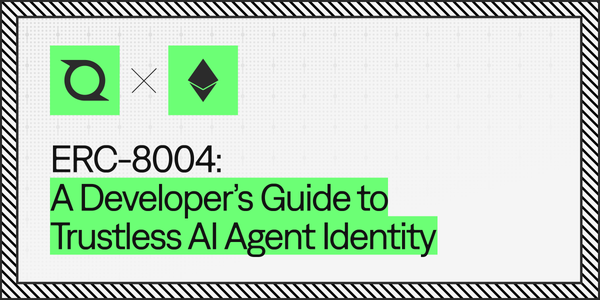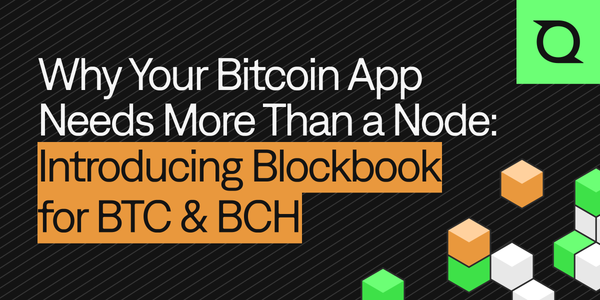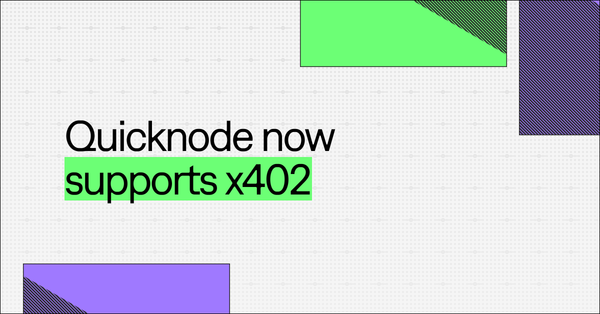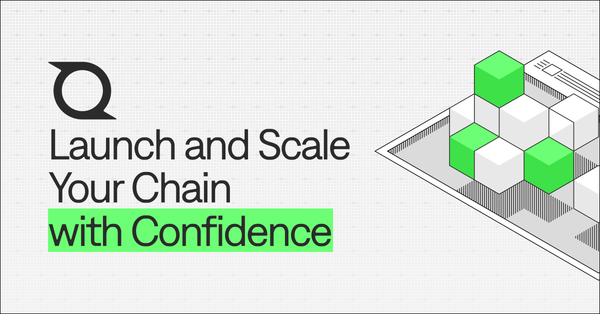QuickNode Cloud APIs vs. Running Your Own Dedicated Node
A deep dive into the advantages and disadvantages of running your own node vs. using QuickNode Cloud APIs.
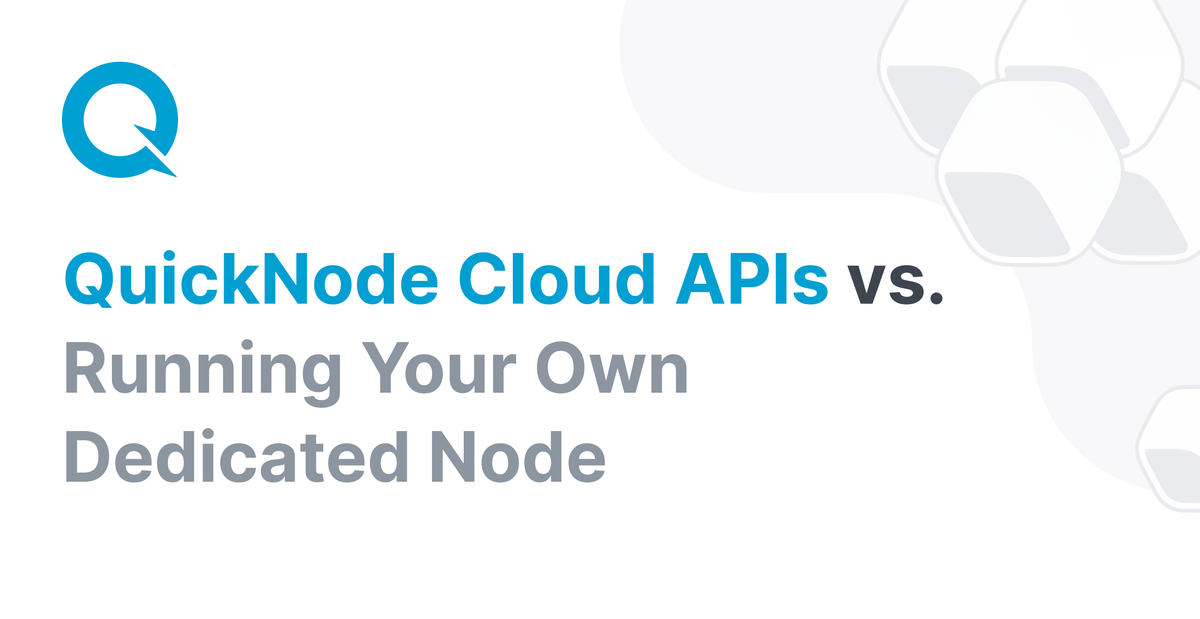
Running your own dedicated Ethereum node is an idea that crosses the minds of most Web3 builders, tinkerers, and blockchain enthusiasts at some point. But what does it entail, and how viable of an option is it to set up on your own?
When running your own Ethereum node, or "client," as the software that runs the Ethereum blockchain is known, having your own dedicated node that can't be misused or falsified is an attractive goal. A private Ethereum node provides builders with a copy of the Ethereum blockchain that is consistently up-to-date with new blocks and transactions and — perhaps most importantly — cannot be corrupted or misused by users outside your local area network.
Running your own dedicated Ethereum node is secure and generally reliable, but it's also expensive and time-consuming. That's why many builders and brands prefer to let QuickNode do the heavy lifting so that they can focus on building beautiful products and delighting users.
Ethereum Nodes
As a refresher and for readers that aren't exactly sure what "running an Ethereum node" means, it requires software known as a "client," which downloads a copy of the Ethereum blockchain and verifies the validity of each block. New blocks and transactions are added automatically, and the greater geographical diversity of nodes strengthens the Ethereum blockchain for all users.
While Ethereum was originally designed to run on nodes installed on the average consumer-grade computer, many users choose to use dedicated hardware to minimize performance impact and potential node downtime.
Types of Ethereum Nodes
There are three types of Ethereum nodes: full node, light node, and archive nodes, though most node operators choose to run either full or lightweight nodes.
- Full Node: Storing the entire blockchain with every block ever added, full nodes participate in block validation and verify all blocks and blockchain states. Full nodes can take weeks to sync every block and transaction that's ever been added to the network and provide data on request.
- Light Node: Light nodes sync block headers instead of every block on the chain and don't require the high bandwidth and performance hardware typically used when operating full nodes. Headers contain summaries of the content of each block and request data from full nodes if more information is needed. A light node can then verify the received data against the state roots contained in the block headers.
- Archive Node: Typically not beneficial for the average user, archive nodes can be helpful for services like block explorers, wallet vendors, and chain analytics. Archive nodes store everything kept in the full node to build an archive of historical states.
Main Advantages of Running Your Own Ethereum Node
Privacy and Security
When you use a public Ethereum node, you risk leaking personal information such as your IP and Ethereum addresses. When using your own dedicated node, your Ethereum wallet can privately and securely interact with the blockchain without risking your personal information.
Each transaction on the Ethereum blockchain is verified locally by your dedicated node. Malicious public nodes can distribute invalid transactions, but you don't need to trust anyone with your own node, and invalid transactions are automatically disregarded.
Censorship Resistant
Having your own Ethereum node ensures your access to the blockchain is available when you need it and never censored. A 3rd-party public node could choose to deny transactions from certain IP addresses or for specific amounts. Your own node guarantees your transactions are broadcast to the rest of the peer-to-peer network without delay, whenever needed.
Decentralization
The more Ethereum nodes there are in geographically diverse locations, the more resilience the Ethereum network achieves. More people running their own nodes reduces the network's reliance on possible points of failure, such as centralized cloud servers, which provide robust computing power but are also targeted by attackers attempting to disrupt the network.
Sovereignty and Self-Reliance
While your Ethereum wallet stores your digital assets by protecting the private keys to your Ethereum addresses, they need to connect to the network to show you your wallet balance and the current state of the blockchain. By default, wallets will connect to the network via a third-party node, such as QuickNode or Infura.
Your own dedicated node means you don't need to use a third party to access the blockchain network, and it operates as a copy of the entire Ethereum blockchain.
Voicing Your Choice
If a chain fork is imminent, where two chains emerge with their own rules, running your own Ethereum node ensures you have the choice of which set of rules you'll support or whether you'll choose not to implement the changes. When you use a third-party node, you forfeit the opportunity to choose which client you think is the best.
Disadvantages of Running Your Own Ethereum Node
Time-Consuming
Running your own node and maintaining it takes a lot of time and involves dealing with many technical issues beyond the initial 3-6 months of establishing a robust, functional blockchain infrastructure.
High Maintenance Costs
While you can technically run your own node from a personal computer, the minimum requirements for a full node entail using a lot of RAM to make it worthwhile. Most users that run their own node have dedicated hardware with large amounts of free disk space — 500GB or more — so they don't have issues downloading and validating transactions. You'll need enough SSDs to hold the current and future size of the entire Ethereum blockchain.
If you are running your own node for larger projects, the setup averages around $86,000/year in maintenance costs — $2,000 - $5,000/month in AWS costs, and about $4,800/month for engineering time. And that would only be the cost of running a single node vs. an entire network.
Another concern is exceeding the upload limits of your internet provider, so an unmetered internet connection is preferable.
Institutional Knowledge Vacancies
One serious disadvantage to running your own node, which might take time to be apparent, is the risk of crucial team member churn. If you have engineering resources or a team member solely responsible for maintaining nodes — and understanding your hosting needs — you're vulnerable to knowledge gaps that could cause downtime if they leave. Then you have to take into account the time and financial costs of finding, hiring, and training a replacement.
This troubling scenario is completely avoidable if you choose to work with a blockchain infrastructure company like QuickNode — where you're covered end-to-end.
Unreliability
Nodes have a lot of issues to deal with, and one or more are likely to happen every few days. Issues include CPU spikes, disk issues, memory leaks, inconsistent peering, corrupted databases, and problems with broadcasting transactions. If reliability is important to you — and it definitely should be — running your own node can be a risky prospect vs. a provider like QuickNode that has 99.9% uptime and security guarantees.
Beyond these reliability issues, users running their own node risk the consequences of losing their keys and passwords, which can result in lost data as well as financial penalties. If a node is compromised, your Ethereum stake can be permanently slashed, and it can take months or even years before your access is regained.
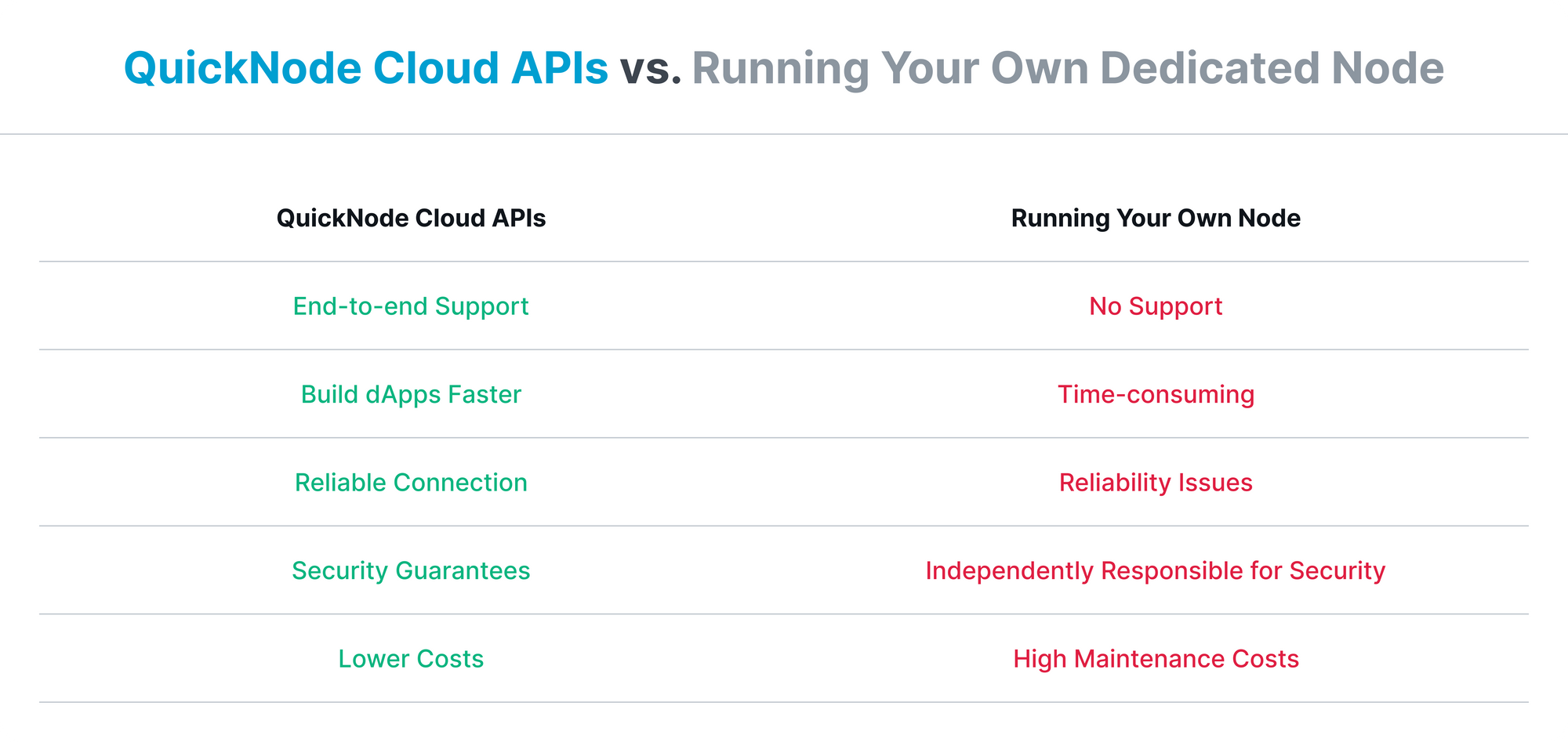
Benefits of an RPC Provider Cloud API
RPC node providers, like QuickNode, alleviate the need to burden yourself with the infrastructure operations of operating your own node. RPC node providers offer users looking to establish their own node support and operational services and other benefits you won't have if you run your own full node. You'll be able to enter and exit the blockchain anytime and focus on your core business while trusting professionals to manage the blockchain infrastructure and its performance.
End-to-end Support
Contracting a node service provider, sometimes called a "blockchain-as-a-service" company, means all the necessary tasks to keep the blockchain infrastructure operational are handled by professionals. As a result, you don't need a dedicated team of your own to operate your node and keep it up and running.
Reliable Connection
Enterprise-grade internet connectivity ensures you can create and configure smart contacts, send and receive transactions, and request data from the blockchain whenever necessary.
Security Guarantees
While Ethereum is decentralized, an RPC node provider should follow internationally recognized data protection laws, such as GDPR, ensuring their nodes keep data and their users' access to data private and secure.
Security guarantees will differ between RPC providers, so be sure to get a clear picture of what your RPC provider offers before signing the contract.
Build dApps Faster
By not expending engineering resources and time maintaining your own dedicated node, you'll be able to create dApps faster. Quality RPC node providers like QuickNode should also offer multiple load-balanced nodes deployed in different geographical regions to provide their clients with low latency.
Cloud APIs are proven to be faster than self-hosted nodes.
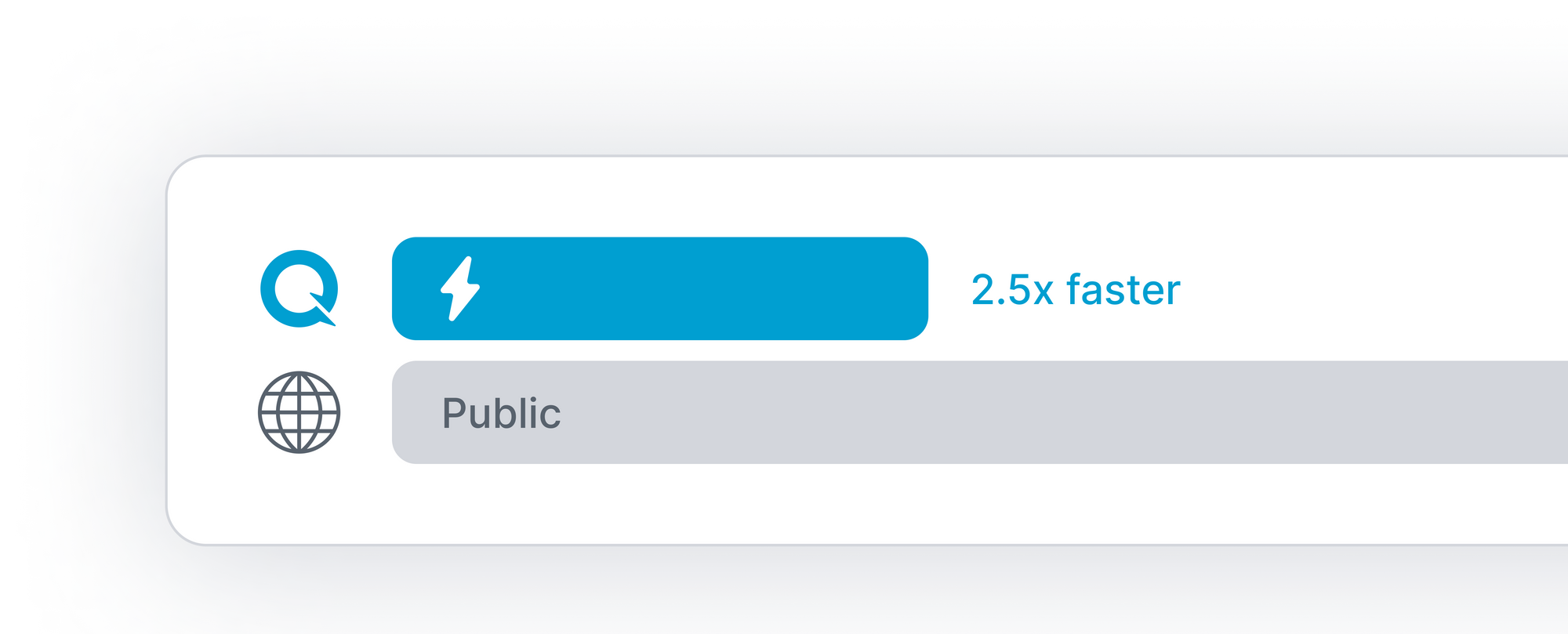
Running Your Own ETH Node or Using an RPC Provider
While this is by no means an exhaustive guide to running your own dedicated Ethereum node or choosing to use an RPC provider like QuickNode, we hope this has helped clear up some of the factors you should consider before making your choice.
Professional RPC providers like QuickNode offer fully-managed Ethereum nodes via Cloud API technology, which alleviates the need to spend vast amounts of time and resources setting up your own node. You'll have access to nearly all the advantages of operating your own node without the frustration of setting it up and maintaining hardware and blockchain infrastructure to ensure consistent node performance.

Contact QuickNode today to learn more about our Cloud API node technology and how we can implement it in your business. QuickNode offers free monthly access for 10 million API credits, then scales from $49/month for 20 million API credits to $299+ for 120 million API credits and enterprise-level business models.
About QuickNode
QuickNode is building infrastructure to support the future of Web3. Since 2017, we've worked with hundreds of developers and companies, helping scale dApps and providing high-performance access to 16+ blockchains. Subscribe to our newsletter for more content like this and stay in the loop with what's happening in Web3!


